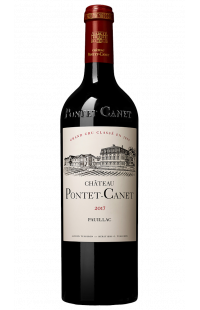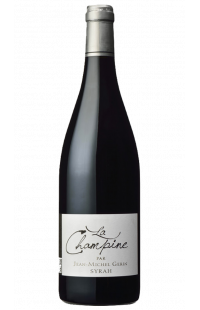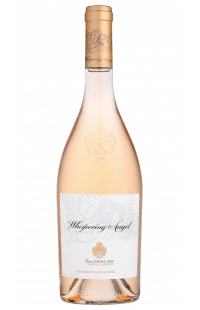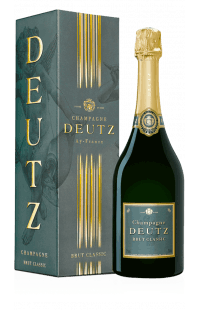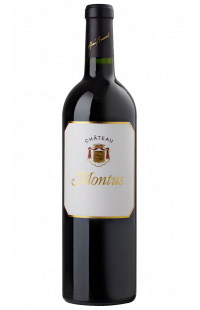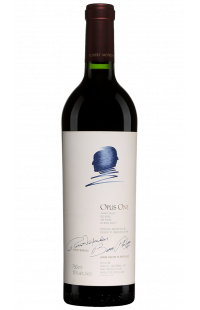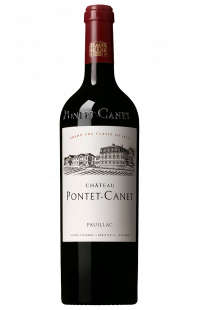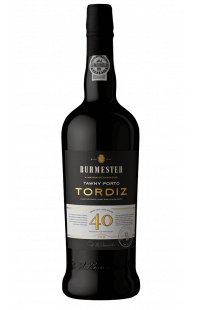- Menu
- All our wines
- Bordeaux
-
Rhône
-
Burgundy
-
Rosés Wines
-
Champagne
- France
-
World
- PRIMEURS
- ORGANIC WINES
Portugal wines
There are 4 products.
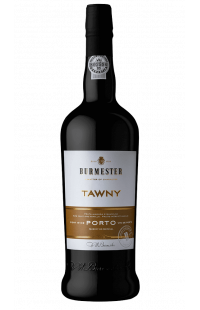
Available in
- Bottle with gift box (75cl)
- 11.50€ / bottleTASTING NOTES
Specifications
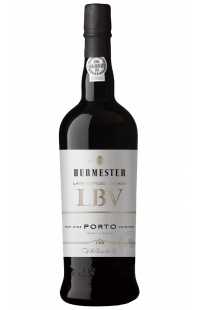
Available in
- Bottle with gift box (75cl)
- 19.90€ / bottleTASTING NOTES
Specifications
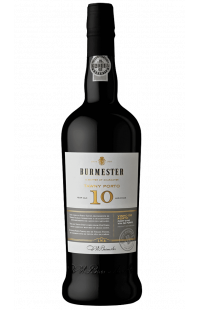
Available in
- Bottle with gift box (75cl)
- 49.90€ / bottleTASTING NOTES
Specifications
Portuguese Wines: A Rich Viticultural Tradition to Discover
Portugal is a country where viticulture has been ingrained in history since antiquity. With diverse terroirs, a wide variety of grape varieties, and winemaking traditions passed down through generations, Portugal offers an unparalleled viticultural richness. This article invites you to dive into the world of Portuguese wines, to understand their history, explore their terroirs, and discover the grape varieties that make this unique wine region renowned.
History of Viticulture in Portugal
Ancient Origins
Portugal, thanks to its strategic geographical location, has been a meeting point for various ancient civilizations, including the Phoenicians, Greeks, and Romans. These peoples, in addition to their trade traditions, introduced vine cultivation to Portugal. The earliest traces of viticulture thus date back several centuries before our era. The Romans, great wine enthusiasts, particularly contributed to the spread of viticultural techniques, making Portugal one of Europe's earliest wine centers.
Influence of Merchants
In the Middle Ages, Portuguese viticulture continued to prosper thanks to trade exchanges with other European regions. English merchants, in particular, played a key role in popularizing Portuguese wines, notably fortified wines like Port. This flourishing trade allowed Portuguese wines to be widely exported while influencing production and preservation methods.
Evolution Over the Centuries
Portuguese viticulture has undergone several significant evolutions over the centuries. The introduction of new winemaking techniques, the adoption of international grape varieties, and the establishment of an appellation system have all contributed to enriching Portuguese wine production. Portugal has managed to combine tradition and innovation to remain competitive on the international wine scene.
Heritage of Latin Peoples
The influences of Latin peoples, notably the Romans, have left an indelible mark on Portuguese viticulture. These influences are found in the architecture of wine estates, winemaking methods, and even in certain indigenous grape varieties still cultivated today. Portugal has preserved this heritage while adapting it to modern demands of wine production.
The Viticultural Terroirs of Portugal
Geographical Diversity
Portugal is a country of geographical contrasts, offering exceptional terroir diversity for viticulture. From the inland mountains to coastal plains, through river valleys and plateaus, each region presents unique characteristics that influence the profile of the wines produced.
Climate Influence
Portugal's climate varies considerably from one region to another, ranging from a temperate maritime climate on the Atlantic coast to a more continental climate inland. This climatic diversity allows Portugal to cultivate a wide range of grape varieties, each expressing its unique character depending on the terroir and weather conditions.
Soil Types
Portuguese soils are as varied as the climate, ranging from the granitic soils of the north to the clay-limestone soils of the south. Each soil type brings different complexity to the wines, influencing minerality, structure, and longevity of the crus. Portuguese winemakers have skillfully exploited these particularities to produce wines of character, faithfully reflecting their terroir of origin.
Major Wine Regions
Among Portugal's main wine regions are Douro, Minho, Alentejo, and the Lisbon region. Douro, famous for its Port wines, is one of the oldest demarcated wine regions in the world. Alentejo, with its hot and dry climate, produces rich and powerful red wines. Each region offers a diversity of styles, allowing wine lovers to discover varied flavors.
Emblematic Portuguese Grape Varieties
Overview of Grape Varieties
Portugal is a true treasure trove of ampelographic diversity, with over 250 indigenous grape varieties recorded. These unique grape varieties give Portuguese wines their distinctive character, often unattainable in other parts of the world.
Alvarinho
Alvarinho is an emblematic white grape variety from northern Portugal, notably the Minho region. Known for its floral aromas and vibrant freshness, Alvarinho produces dry white wines perfect for accompanying seafood or light dishes. This grape variety is also cultivated in Spain under the name Albariño but expresses its singularity on Portuguese granitic soils.
Baga
Baga is a red grape variety mainly cultivated in the Bairrada region. It yields tannic and full-bodied wines with great aging potential. Baga is often compared to Italian Nebbiolo due to its structure and complexity. This grape variety, long neglected in favor of easier-to-vinify varieties, is experiencing a revival today, thanks to passionate winemakers seeking to preserve its unique heritage.
Touriga Nacional
Touriga Nacional is undoubtedly Portugal's most famous red grape variety. Used primarily in the production of Port, it is also vinified as a still wine. Touriga Nacional produces powerful wines with intense aromas of dark fruits, spices, and flowers, with marked tannic structure. This grape variety is now a symbol of Portuguese viticultural excellence, appreciated both in the local and international markets.
International Grape Varieties in Portugal
In addition to its indigenous grape varieties, Portugal also cultivates international varieties such as Cabernet Sauvignon, Merlot, and Chardonnay. These grape varieties, while less representative of Portugal's viticultural identity, allow producers to create wines that cater to global tastes while retaining a local touch.
Portuguese Wine Appellations
Appellation System in Portugal
Portugal's appellation system is structured to guarantee the origin and quality of wines. Portuguese wines are classified into two main categories: VQPRD (Quality Wines Produced in Specified Regions) and table wines. VQPRD includes DOC (Denominação de Origem Controlada) and IPR (Indicação de Proveniência Regulamentada), the latter being equivalent to the French VDQS.
The 27 DOCs
Portugal has 27 appellations classified as DOC, each reflecting the unique characteristics of its terroir. Among the most famous are Douro, Vinho Verde, Alentejo, and Dão. These regions are recognized for producing high-quality wines, often awarded on the international stage.
The 4 IPRs
Wines classified as IPR are produced in regions where the viticultural tradition is less established but where recognized qualitative potential exists. These appellations, constantly evolving, are often an experimental ground for winemakers seeking to create innovative wines.
Difference Between DOC and IPR
The main difference between DOC and IPR lies in the level of recognition and production rules. DOCs are subject to strict regulations concerning grape varieties used, yields, and winemaking methods, while IPRs offer more flexibility, allowing producers to explore new techniques while remaining within viticultural traditions.
Portuguese Wines: A Sensory Experience
Tasting Portuguese Wines
Tasting a Portuguese wine is embarking on a journey to discover rich and varied terroirs. Portuguese wines are distinguished by their aromatic complexity, balance between freshness and structure, and aging capacity. Each sip tells a story of ancestral know-how combined with a passion for innovation.
Typical Aromas and Flavors
Portuguese wines are known for their intense and varied aromas. Red wines often offer notes of dark fruits, licorice, cocoa, and spices, while white wines are marked by floral aromas, citrus, and white-fleshed fruits. Port, for its part, is famous for its rich flavors of dried fruits, caramel, and chocolate.
Food and Wine Pairings
Portuguese wines pair perfectly with local gastronomy but also with many international cuisines. The full-bodied red wines of Alentejo go well with grilled meats, while the fresh white wines of Vinho Verde are ideal with seafood. Due to its sweetness, Port is often enjoyed at the end of a meal, accompanied by cheeses or chocolate desserts.
Great Portuguese Wines to Discover
Red Wines
Portugal is renowned for its powerful and robust red wines, mainly from indigenous grape varieties like Touriga Nacional and Baga. These wines, often aged in oak barrels, offer great aromatic complexity and tannic structure that gives them excellent aging potential.
White Wines
Portuguese white wines, less known than their red counterparts, are nonetheless remarkable. Grape varieties like Alvarinho and Arinto produce fresh, lively wines with lovely minerality, perfect for accompanying fish or seafood dishes.
Rosé Wines
Portugal also produces rosé wines, generally light and fruity, ideal for summer enjoyment. These wines, often perceived as simpler, can surprise with their finesse and complexity.
Sparkling Wines
Less common, Portuguese sparkling wines, notably those produced in the Bairrada region, offer an interesting alternative to Champagnes and Crémants. These wines, made using the traditional method, are often fresh and elegant, with fine and persistent bubbles.
Dessert Wines
Portugal is globally famous for its dessert wines, notably Port and Madeira. These fortified, rich, and sweet wines are made from carefully selected grapes and benefit from prolonged barrel aging, giving them unique aromatic depth.
Organic Viticulture in Portugal
Sustainable Initiatives
More and more Portuguese winemakers are turning to sustainable and organic viticultural practices to preserve the environment and produce healthier wines. These initiatives include using farming methods that respect biodiversity, reducing chemical inputs, and resorting to renewable energy in production processes.
Organic Certification
Organic wines are subject to strict regulations in Portugal, guaranteeing consumers products free from synthetic chemical residues. Certified organic vineyards must adhere to specific agricultural practices, promoting the balance of natural ecosystems and soil health.
Impact on Wine Quality
Portuguese organic wines are often praised for their aromatic purity and faithful expression of terroir. By eliminating the use of synthetic chemicals, winemakers allow grape varieties to express themselves fully while preserving soil quality and the environment.
Leading Producers
Among the pioneers of organic viticulture in Portugal are estates like Quinta do Crasto, Herdade do Esporão, and Soalheiro. These producers are recognized for their commitment to sustainability and their ability to produce high-quality, environmentally friendly wines.
Current Trends in Portuguese Wine
Return to Indigenous Grape Varieties
One of the significant trends in Portuguese viticulture is the return to indigenous grape varieties. Winemakers are rediscovering and promoting forgotten varieties, which bring diversity and originality to Portuguese wines. This approach is often motivated by a desire to preserve the country's viticultural heritage and stand out in the global market.
Innovation and Tradition
The marriage of innovation and tradition is another strong trend in Portugal. Young winemakers do not hesitate to experiment with new winemaking techniques while respecting ancestral methods. This approach allows for creating wines that are both modern and authentic, meeting consumer expectations while preserving Portugal's viticultural identity.
Influence of Young Winemakers
The new generation of Portuguese winemakers brings a breath of fresh air to the wine industry. These young talents, often trained abroad, return to Portugal with new ideas and enthusiasm for indigenous grape varieties. They play a crucial role in the evolution of Portuguese viticulture by introducing innovative techniques and exploring new markets.
The Best Wine Estates in Portugal
Selection of Renowned Estates
Portugal is home to many renowned wine estates, each offering wines of exceptional quality. Quinta do Noval, Graham's, and Niepoort are among the most famous, notably for their Ports. In Alentejo, Herdade do Esporão is an emblematic estate known for its powerful red wines and initiatives in sustainable viticulture.
Visits and Tastings
Visiting a wine estate in Portugal is an immersive experience that allows you to discover production processes, explore cellars, and taste wines directly on-site. Many estates open their doors to visitors, offering guided tours, commented tastings, and sometimes even winemaking courses.
Exceptional Locations
Some Portuguese wine estates are located in exceptional settings, offering breathtaking views of vineyards, rivers, or mountains. Quinta da Pacheca in Douro, for example, offers accommodations in giant barrels amidst the vines, providing a unique oenological experience.
How to Buy and Store Portuguese Wines
Tips for Buying
When buying Portuguese wines, it's important to consider the vintage, region of origin, and producer. Wines bearing the DOC mention are generally a guarantee of quality, but don't hesitate to explore IPRs and table wines to discover lesser-known gems. It's also recommended to favor purchases from specialized wine shops or directly from producers to ensure provenance.
Optimal Storage
To store your Portuguese wines in the best conditions, it's essential to keep them in a cool, dark place with stable temperature. Red wines should be stored at a temperature between 12 and 18 degrees Celsius (54-64°F), while white and rosé wines are best kept between 8 and 12 degrees Celsius (46-54°F). Bottles should be laid down so that the cork remains moist, thus preserving the seal.
Wine Evolution Over Time
Portuguese wines, notably reds and Port wines, have excellent aging potential. Over time, these wines develop secondary and tertiary aromas, such as notes of undergrowth, leather, or tobacco, adding extra complexity to their aromatic profile. However, it's important to monitor the wines' evolution to enjoy them at their peak.
Wine Fairs and Events in Portugal
Main Events
Portugal hosts numerous wine events throughout the year, attracting wine enthusiasts and professionals. "Essência do Vinho" in Porto is one of the largest wine fairs in Portugal, offering a wide selection of wines to taste. The "Festa do Vinho Madeira" is another unmissable event, celebrating the richness of Madeira wines with tastings, concerts, and exhibitions.
Cultural Importance
Wine fairs and events in Portugal are not only tasting occasions but also moments of cultural celebration. These events highlight the country's viticultural heritage, allow meeting winemakers, and foster exchanges between producers and consumers.
Meetings with Winemakers
Participating in these events allows you to meet winemakers, learn more about their production philosophy, and discover wines directly from those who created them. These encounters enrich the oenological experience and strengthen the link between the wine and its terroir.
Portugal and Wine Exportation
Main Markets
Portuguese wines are exported worldwide, with main markets in Europe, the United States, and Brazil. Port remains the most exported Portuguese wine, followed by wines from Vinho Verde and Alentejo. Exportation represents a significant part of the Portuguese wine economy, contributing to the international recognition of the country's wines.
International Influence
The influence of Portuguese wines on the international scene continues to grow, thanks to their consistent quality and diversity. Indigenous grape varieties like Touriga Nacional and Alvarinho are increasingly appreciated for their unique character, leading to increased demand in international markets.
Export Strategies
To strengthen their international presence, Portuguese producers implement diversified export strategies, such as participating in international fairs, targeted promotion campaigns, and collaborating with local distributors. These efforts aim to broaden the notoriety of Portuguese wines and conquer new markets.
Portuguese Wines in Global Gastronomy
Place of Portuguese Wines on the International Scene
Portuguese wines are increasingly finding their place in global gastronomy, whether in starred restaurants or trendy bistros. Pairing Portuguese wines with international cuisine highlights the versatility and quality of these wines, making them essential on wine lists.
Pairings with World Cuisines
Portuguese wines pair perfectly with many international cuisines. Alvarinho white wines accompany spicy Asian dishes wonderfully, while Alentejo reds go well with grilled meats and Mediterranean dishes. Port, for its part, is an excellent match for chocolate or dried fruit-based desserts.
Investing in Portuguese Wines
Why Invest
Investing in Portuguese wines can be a lucrative endeavor due to the increasing quality of the wines and their international recognition. Port wines, in particular, have always been a safe choice for collectors because of their longevity and potential appreciation.
Wine Appreciation
The appreciation of Portuguese wines is based on several factors, such as rarity, vintage, and producer reputation. Some wines, notably those from exceptional harvests or produced in limited quantities, can see their value increase significantly over time.
Tips for Collectors
For collectors interested in Portuguese wines, it's advisable to focus on great Port crus and renowned DOCs like Douro and Alentejo. It's also important to store wines properly, in optimal conditions, to preserve their quality and resale potential.
Legends and Traditions Around Portuguese Wine
Myths and Anecdotes
Portuguese wine is surrounded by many legends and anecdotes that add to its charm. One of the most famous is the origin of Port, discovered by chance by English merchants who added brandy to wine to stabilize it during transport. This practice gave birth to the fortified wine we know today as Port.
Influence in Portuguese Culture
Wine occupies a central place in Portuguese culture, not only as a consumer product but also as a key element of traditions and celebrations. Many religious and popular festivals include wine as a symbol of conviviality and sharing.
Unique Viticultural Traditions
Portugal is also rich in unique viticultural traditions, such as the practice of "Pisa," the foot-treading of grapes in large stone lagares, still used in some regions like Douro. This ancestral method is a tribute to traditional winemaking techniques and helps preserve the country's viticultural identity.
Portuguese Wines and Tourism
Wine Tourism in Portugal
Wine tourism is booming in Portugal, attracting wine enthusiasts from around the world eager to discover vineyards, taste exceptional crus, and learn more about local viticultural traditions. Douro and Alentejo are among the most popular destinations, offering spectacular landscapes and memorable oenological experiences.
Wine Routes
Portugal offers several wine routes, each providing a unique itinerary through the country's wine regions. The Douro Wine Route, for example, allows you to discover estates perched on the steep hills of the Douro Valley, while the Alentejo Wine Route crosses sunny plains dotted with century-old vineyards.
Unmissable Oenological Experiences
Among the unmissable oenological experiences in Portugal are private tastings in Porto's cellars, participatory harvests in Douro, and visits to organic estates in Alentejo. These activities allow you to discover Portuguese wines in an immersive and educational way while enjoying the surrounding beauty.
New Grape Varieties to Discover
Emerging Grape Varieties
Always in search of diversity, Portugal also highlights new grape varieties gaining popularity. Varieties like Encruzado for white wines or Castelão for reds are starting to appear in international markets, captivating with their originality and aromatic potential.
Viticultural Experimentation
Portuguese winemakers continue to innovate by experimenting with forgotten grape varieties or crossing varieties to create new expressions of their terroirs. This experimentation contributes to enriching the Portuguese wine landscape and offering consumers increasingly diverse wines.
Influence of Climate Change
Climate change also impacts viticulture in Portugal, prompting winemakers to explore new grape varieties more resistant to extreme conditions. This adaptation is essential to ensure the sustainability of wine production in the face of current environmental challenges.
Portuguese Wines: Reputation and Awards
International Awards
Portuguese wines are regularly awarded in international competitions, notably wines from Douro and Alentejo, which stand out for their quality and expressiveness. These distinctions help strengthen the reputation of Portuguese wines and make them known to a global audience.
Influence on Wine Reputation
International awards have a direct impact on the reputation of Portuguese wines by increasing their visibility and validating their quality among consumers and industry professionals. They also play a crucial role in expanding exports by encouraging distributors to include more Portuguese wines in their portfolios.
Best Awarded Crus
Among the most awarded crus are Vintage Port, considered one of the most prestigious fortified wines in the world, as well as some reds from Alentejo and Dão, recognized for their structure, complexity, and aging potential.
Frequently Asked Questions About Portuguese Wines
How do I choose a good Portuguese wine? To choose a good Portuguese wine, it's advisable to learn about the wine regions and indigenous grape varieties. Wines bearing the DOC mention are often a guarantee of quality. Don't hesitate to seek advice from a wine merchant or consult online reviews for guidance.
What are the most used grape varieties in Portugal? The most emblematic grape varieties of Portugal are Touriga Nacional, Alvarinho, and Baga. These indigenous varieties are highly appreciated for their intense aromas and ability to express the Portuguese terroir uniquely.
Is Port the only fortified wine from Portugal? No, Madeira is another fortified wine produced in Portugal, notably on the island of Madeira. This wine is distinguished by its rich flavors and ability to age for many years.
What are typical food and wine pairings in Portugal? Portuguese wines pair well with local dishes such as seafood, grills, and meat dishes in sauce. Alvarinho white wines perfectly accompany seafood, while full-bodied reds go well with meat dishes.
Can you visit Portuguese vineyards? Yes, many vineyards in Portugal offer guided tours and tastings. Douro, Alentejo, and the Lisbon region are particularly popular for wine tourism.
Are Portuguese wines internationally recognized? Yes, Portuguese wines are increasingly recognized on the international scene, with numerous awards and a growing presence in global markets. Port wines, in particular, enjoy worldwide renown.
Conclusion
Portugal is a wine land rich in history, diversity, and traditions. Whether you're a lover of powerful red wines, fresh white wines, or complex fortified wines, Portugal has something to satisfy every palate. The richness of the terroirs, the variety of indigenous grape varieties, and the winemakers' commitment to producing quality wines make Portugal an essential wine destination. Explore, discover, and savor Portuguese wines for a unique sensory experience.
